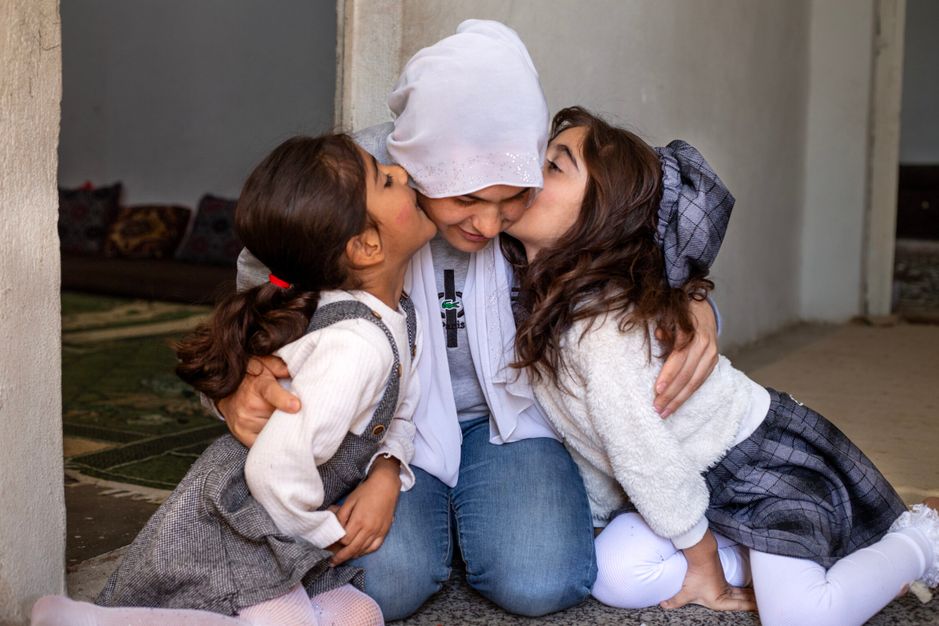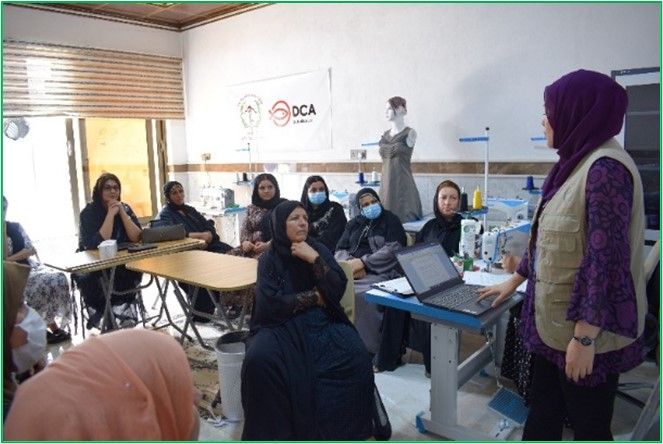When Awad Obeid Salih was a child, he often ran around the fields around his village in Iraq. The family are shepherds, and the fields have therefore always been like a big backyard for him.
“I was never afraid to go out into the field. I didn’t know what was in the ground,” says 18-year-old Awad, sitting on a wooden bench in his uncle’s kiosk, where he works as a clerk.
Awad used to help his family take the sheep into the field. He had done so since he was very little. One day six years ago would change Awad’s life forever when he is out in the field.
“I remember that there was very tall grass. It was so high that I couldn’t see the ground. The next thing I remember is when I wake up in the hospital,” he says.
Awad was 12 years old when he stepped on an improvised explosive device (an IED), which has been left in the ground by the thousands after years of fighting in the area around Mosul in Iraq against ISIS. When Awad woke up, doctors told him that he had lost both his legs, but that he was lucky to escape.
Many other children of Awad’s age are not so lucky. According to figures from the UN, abandoned IEDs and grenades killed 55 children in 2022 alone. That’s the equivalent of one child a week.

I still don’t feel like others my age. For example, I can’t walk very far before I have to take a break. And it sometimes bleeds at the prostheses and hurts if I walk over 500 meters.”Awad Obeid Salih
Harder to lose hope than to lose your legs
What is an IED?
An Improvised Explosive Device (IED) is an improvised explosive device. They are made of explosives, ignition mechanisms, and containers for the explosion. The materials are often obtained from conventional weapons such as grenades, aircraft bombs or plastic explosives.
An IED can be remote-controlled, triggered by pressure or by a timer. However, since the bombs are often made by amateurs, they are very unpredictable.
In warfare, IEDs are used by non-state actors such as terrorists, insurgent groups, or criminals. IEDs have frequently been used as roadside bombs or mines in Iraq.
While he was in the hospital, Awad could feel the dreams and hope for a good future draining from his body. Everything seemed meaningless, he says.
“After the explosion, I lost all hope. I thought that was it. It was my life that was over.”
It would take two years before Awad got prostheses. He remembers those two years as discouraged.
“I had depression. I could do nothing myself. It was totally hopeless. Losing hope in that way was worse than losing your legs,” he says.
When Awad finally got his prostheses and had to learn to walk again, he, with great support from his family, slowly regained faith in life. He had to give up helping the family as a shepherd, but instead got a job in his uncle’s kiosk, which has given rise to a new dream.
“My biggest wish is to open my own store. To be honest, I would actually like to open my own mall,” says Awad with a broad laugh. The smile hits a customer who is in to buy an energy drink. The customer smiles back and replies to Awad that he will definitely be able to do that with his drive.

“My biggest wish is to open my own store. To be honest, I would actually like to open my own mall,” says Awad with a broad laugh.
Hundreds of explosives are removed
DanChurchAid works in the area around Mosul with the Iraqi organization Health and Social Care Organization in Iraq (IHSCO), which clears the ground for mines, bombs, grenades and IEDs left behind after many years of war.
At the beginning of 2023, IHSCO completed the clearing of an area of 37,000 sqm2 – equivalent to a little more than five football pitches. Here they found 150 IEDs. The area where Awad stepped on an IED six years ago has now also been cleared of explosives.

“It makes me really happy to think about. Then there will be no more people who will be injured there. It should never happen to others that they step on a mine,” says Awad.
IHSCO also provides education for children on identifying IEDs or other dangerous remnants of war. Children learn to report dangerous objects they find and avoid certain areas where explosives are cleared or where explosives have been found.

About the project:
Exact/full title: Strengthening of Iraq’s National Humanitarian Mine Action capacity
Period: 25th November 2020 – 24th november 2022
Partner: Health and Social Care Organization in Iraq (IHSCO)
Budget: 2,489,357 USD
Theme: Save Lives
Donor: UNMAS




